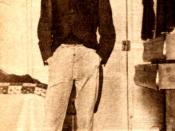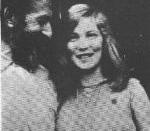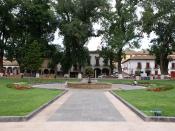Horacio Quiroga was born in 1878, a time when Uruguay and Argentina were going through many different economic and social changes. Within months his natural father was killed in a hunting accident, the first of a series of tragic deaths that were to affect profoundly Quiroga and his work. Around the same time there were many changes in the arts too. The Modernist movement in Buenos Aires in the 1890s attracted many foreign poets, and in the capital of the Republic of Uruguay, Montevideo, there was a rise of intellectuals and writers, poets, novelists, dramatists and short story writers, including Horacio Quiroga (1878-1937). His first literary master was the famous Edgar Allan Poe, and often followed in his footsteps, writing stories closely resembling that of Poe. He was especially interested in the works of Poe, because he was fascinated with the themes of madness and death. The short stories of Quiroga are often a mystery and focus deeply on the ideas of man and nature.
In this essay I am going to explore two short stories by Quiroga, A la deriva and El hombre muerto in the light of the following statement; "Quiroga does not glorify Nature; he simply shows how it works".
In 1899 Quiroga founded a magazine, the Revista del Salto. He contributed an article on sadism and masochism, showing from an early age, his interest of abnormal psychology, which as we see, he continues to have throughout his life. Soon after, he travelled to France where he tried his very best to enjoy his surroundings, but found that it just was not the place for him and felt he did not fit in with the Parisian bohemian life. In no more than a few months he was back in Uruguay. But after a fatal accident involving...


